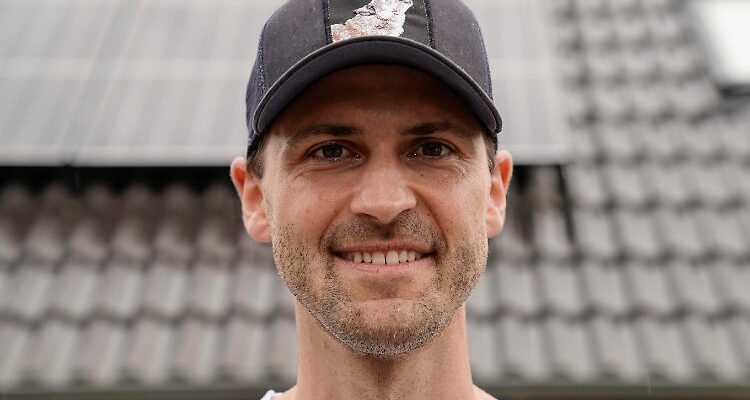Production of solar systems
“China can’t do it alone”
02/26/2023, 4:41 p.m
The European solar industry is heavily dependent on China. Politicians are trying to change that – but for some in the industry, progress is too slow. “We should finally get started and not always grapple with any concerns. That annoys me extremely,” says Mario Kohle, founder of the start-up Enpal.
Mr. Kohle, the European photovoltaics industry is heavily dependent on China. Politicians want to change that and bring production back to Europe. You too buy with your company Enpal mainly in China. Are you already considering realigning your supply chains?
Mario Kohle: China clearly dominates the production of solar systems – with one sub-product, the wafers, for example, it is 97 percent. That is, 97 percent of the solar systems have once passed through China. We are extremely satisfied with our Chinese partners. The most recent crises in particular have strengthened trust once again. However, I believe that what China can produce will not be enough. The demand is gigantic, because we have to completely convert our electricity system worldwide to renewable energies. China cannot do this alone either. So yes, of course we always look around.
Where is there still potential for growth?
Solar energy is experiencing a worldwide boom. The US understands that. And my wish is that the EU understands this too. There is an amazing opportunity for Europe and business right now. For example, Herbert Diess has already announced that he will build 15 to 20 solar plants in Europe. I’m really looking forward to these and other projects.
Will Enpal also get involved?
No, for us the production itself is rather nothing. We take care of everything that happens after production. But we are happy about partnerships and are in intensive discussions with the leading companies here.
Recently, 26 companies presented a plan to breathe new life into the European solar industry – including Enpal, but also energy companies like Eon. Do you sense political momentum for your topic?
Yes, I can definitely feel that. We have recognized in Europe that there are certain key industries that we need here – for example batteries. We’re on the right track there. Now the focus is more and more on photovoltaics.
Enpal founder Mario Kohle secured Series D funding in January that valued the company at $2.4 billion.
(Photo: picture alliance / Flashpic)
Can we find enough people for this – keyword: shortage of skilled workers?
Yes, production is sexy again, especially among the younger generation. I can feel that very clearly. In addition, there are completely different signs than 20 years ago. We were once the leader in PV in Europe, we even invented it. In the meantime, automation has progressed so far that we need significantly fewer staff for the construction of PV modules. The labor costs are no longer as important as they were back then. If we now also have low energy costs thanks to more renewable electricity and take advantage of the economies of scale, we can also produce PV systems more cheaply. The supposed shortage of skilled workers shouldn’t really be at the heart of the debate.
Rather?
We should finally get started and not always grapple with any misgivings. That annoys me extremely. How often have I heard that it doesn’t work, that’s far too ambitious – and in the end it worked. Henry Ford once said, “Whether you think you can or you think you can’t, you’re right in either case.” And we should approach the production of solar modules in Europe just as boldly. I find it very inspiring, for example, when people like Herbert Diess come forward and say: Well, let’s do it now.
Are the general conditions in Europe now in place to get started?
The USA is showing the way: The Inflation Reduction Act guarantees state start-up financing for the domestic solar industry. We need a European answer to that. When I talk to producers, they tell me very clearly: “If I have a choice and can get big subsidies in the US or India – then I’ll go there and not to Europe.” A European response to the Inflation Reduction Act must anticipate the whole thing, because all of this can also be done in Europe. Therefore, in a group of 26 leading companies, we have developed a proposal on how politics can strengthen the solar industry. Enpal was intensively involved here and was in charge of coordinating the development of the proposal. This proposal will be discussed today, Tuesday, with Robert Habeck and the heads of the renewables industry at the BMWK production summit, in order to initiate the renaissance of the German solar industry.
The EU is known to be working on this. What would you like from such a package?
Actually only two things: Fast and easy. Because: all funds are useless if they cannot be claimed due to impractical application and approval procedures. If an LNG terminal only needs ten months, then this “Germany speed”, as proclaimed by Olaf Scholz, must also apply to solar factories. Europe must not hesitate any longer. Now we have to go from wanting to doing. And fast. The US Inflation Reduction Act is good because it is so unbureaucratic. We need something like that here too, and as soon as possible.
Your company Enpal has obviously benefited from the geopolitical situation over the past three years. First by Corona, when many people renovated their houses, then by the Ukraine war, when fossil fuels became incredibly expensive. Now the crises seem to be stabilizing somewhat. How are you with that?
First and foremost, Corona was quite a nightmare for supply chains. And to be honest, we didn’t know directly whether we would survive it either. Fortunately, we opened an office in Shenzhen, China, right in the middle of this period. If we hadn’t done that, we would have been unable to deliver several times. We weren’t like that for a day. The war in Ukraine was then a key moment for many people who suddenly realized how important energy independence is. In this respect, the analysis is correct – but at Enpal we always only look at what is right for us and do not make ourselves dependent on crises.
Jannik Tillar spoke to Mario Kohle

